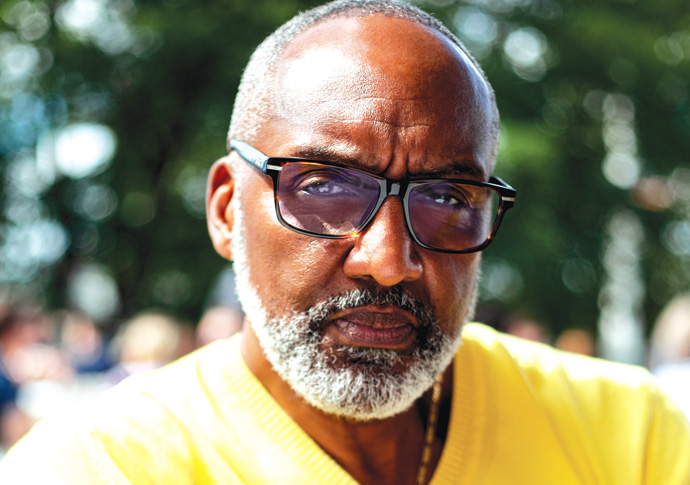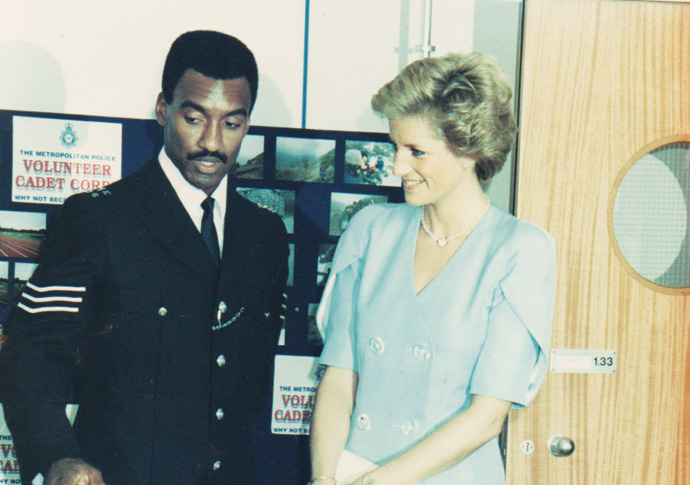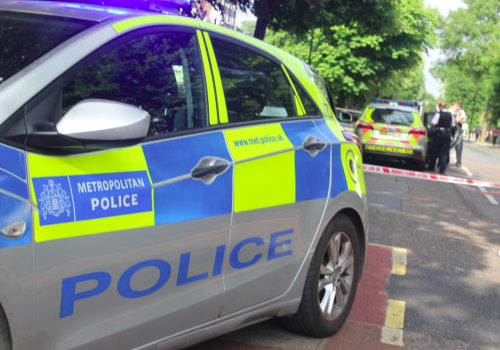‘We need to talk about stop and search’ says former Met officer
Leroy Logan, whose life was told in the Small Axe series, calls for people to share experiences
Friday, 12th March 2021 — By Calum Fraser

Leroy Logan: ‘Unfortunately there is the racial profiling, it is a common occurrence that a young black person will be stopped’
A RETIRED black police officer has revealed that he and his children have been stopped and searched “many times” as he launches a probe into the controversial tactic.
Leroy Logan, whose life was portrayed by actor John Boyega in Steve McQueen’s acclaimed BBC series Small Axe, is calling for people who have been stopped and searched by the police to come forward and talk about their experiences with him.
The former superintendent, who grew up around Angel and spent the first five years of his policing career on the beat in Islington, hopes his research with the University of Westminster will provide better evidence of the psychological impact of being stopped.
He told the Tribune: “My children were stopped once and I was stopped since I retired in 2013 and I was stopped and searched many times before I joined the police.
“Having a call from my children saying they had been stopped was really very emotive. You feel so helpless. It’s very disconcerting to say the least.”
He added: “Unfortunately there is the racial profiling, it is a common occurrence that a young black person will be stopped.

Mr Logan meeting Princess Diana
“Then parents, like myself, will have to have a conversation with them about how they conduct themselves on the streets, how not to attract attention from the police and if you are attracting that attention, how to work with that to de-escalate the situation.”
Mr Logan joined the Met in the 1980s, determined to change the way London’s citizens, especially the black community, were being policed.
He experienced sustained racial prejudice during his career, once having the words “dirty n*****” scrawled on his locker – which he believes could only have been done by his colleagues.
He also helped set up the National Black Police Association and he was a key witness during the Macpherson inquiry which concluded that the Met was “institutionally racist” following the botched investigation into the murder of Stephen Lawrence in 1993.
Mr Logan played a key role in the Damilola Taylor murder investigation where his work engaging with the community helped “break the wall of silence” that was stifling the case.

He believes the Met and the Home Office should be prioritising this kind of community engagement work instead of ramping up the rhetoric on stop and search.
He feels some progress was being made in the force in the decade after the Macpherson Report was published in 1998 but cuts to police budgets since then have rolled back these advances as officers with deep links with communities have been lost.
Mr Logan said: “It’s common sense really, you can’t police London without the cooperation of as many citizens of London as possible. They are your eyes and ears.
“They can then police themselves. But if you make them feel alienated and dehumanised in some way, they are not going to work with you. They will take the law into their own hands, which I don’t condone at all, but unfortunately is happening.”
In the past 12 months there were 8,550 stops in Islington and almost 80 per cent of these resulted in “no further action”.
Jane Connors, the Met’s lead for stop and search, said: “The Met is not racially profiling people, we’re policing in areas where violence is high and we are trying to protect people.
“Tragically, street violence in the capital disproportionately affects boys and young men, particularly of African-Caribbean heritage, both in terms of victims and perpetrators.
“We recognise that stop and search can be concerning for individuals and we are engaging with our communities to explain why we use stop and search as we know this is vital in improving trust and confidence.
“Increasing our understanding of the impact of stop and search is also crucially important, and we are already taking steps to better listen and respond to concerns.”